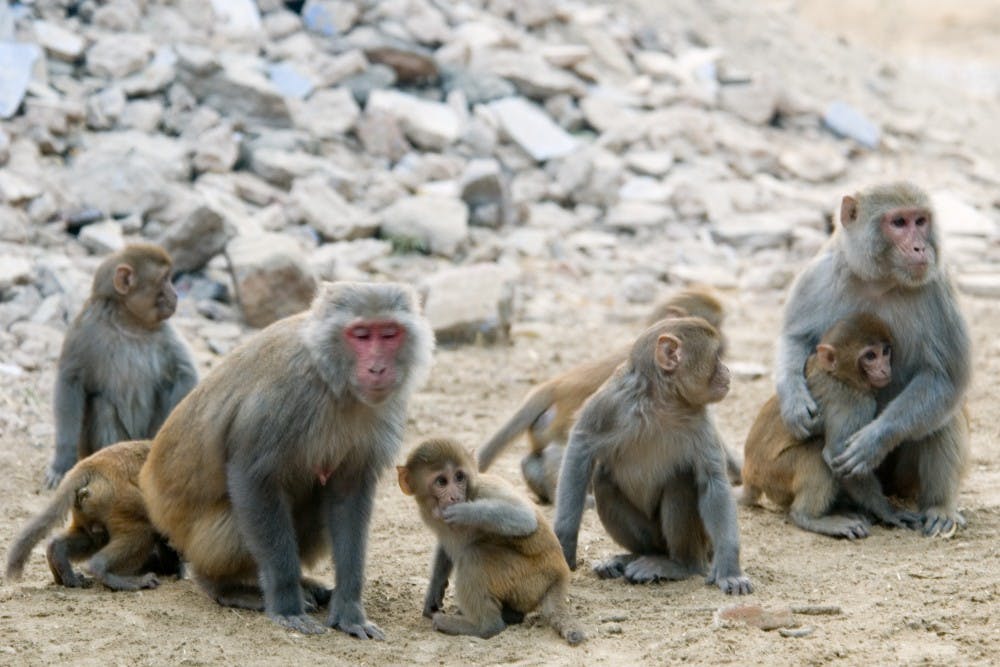
Professor Michael Platt kicks off annual Science Cafe lecture series with a talk about monkeys and friendship. | Courtesy of Amada44/Flickr
Does your brain dictate how many friends you have?
Professor Michael Platt, with appointments in the Wharton School, the College of Arts and Sciences, and the Perelman School of Medicine as a Penn Integrates Knowledge professor, gave a talk on the biological roots of friendship, attempting to answer just that.
His talk kicked off this year’s Science Cafe lecture series, which highlights scientific achievement at Penn. The Science Cafes are complemented by a series of Lightbulb Cafes, which spotlight research in social science, the arts and the humanities. They will take place until August at World Cafe Live.
Using years of study on the behavior and biology of rhesus macaques, a type of monkey, Platt drew parallels to human feelings of friendship, charity, empathy and their source in the brain.
Like humans, rhesus macaques have a strong evolutionary need for friendship. They live in large groups of males and females and place high importance on social status. When rhesus macaques make social decisions the same areas of the brain are activated as are in humans — the cingulate cortex, which controls social interaction, and the amygdala, which controls emotional experience. They combine to form what Platt calls the “social brain network,” and the strength of connection between these two areas directly correlates to the quality and quantity of real-life friendships.
In one of Platt’s experiments to test how these areas function, he and his team placed two monkeys in front of computer screens and allowed them to award fruit juice to the other monkey or throw the juice in the trash. The researchers found that the monkeys preferred to reward the other monkey over throwing the juice in the trash, especially when they liked the other monkey that was being rewarded.
The team also found that when the monkey rewarded the other monkey, its brain responded the same way as it would when the monkey received the juice itself. Platt attributes this to mirror neurons in the amygdala.
“We can predict from [the mirror neurons’] activity how likely it is that the actor monkey will reward the other guy,” Platt said.
Platt also talked about the importance of the love hormone oxytocin and the anxiety hormone serotonin in social interaction. When monkeys inhaled oxytocin it made them more charitable. Oxytocin therapy has even been considered to help people with autism interact more easily, Platt said.
College senior Chloe Getrajdman said that she was most fascinated by Platt’s points on the connection between eye contact and oxytocin. Eye contact between two people can increase oxytocin levels for both people, and Getrajdman said it really brought to light how your actions can have a strong impact on others.
Platt ended by saying that biology does not necessarily predict a person’s social outcome.
“It’s not just that you come in with a strongly functioning ‘social brain network’ — you can make one,” Platt said. “If you are out there trying to make social connections and working very hard to be social, you can develop this network to a higher degree.”
Peter Decherney, Professor of English and Cinema Studies, will give the next talk on “Hollywood’s Past and Future” Tuesday, Feb. 9.
The Daily Pennsylvanian is an independent, student-run newspaper. Please consider making a donation to support the coverage that shapes the University. Your generosity ensures a future of strong journalism at Penn.
DonatePlease note All comments are eligible for publication in The Daily Pennsylvanian.




